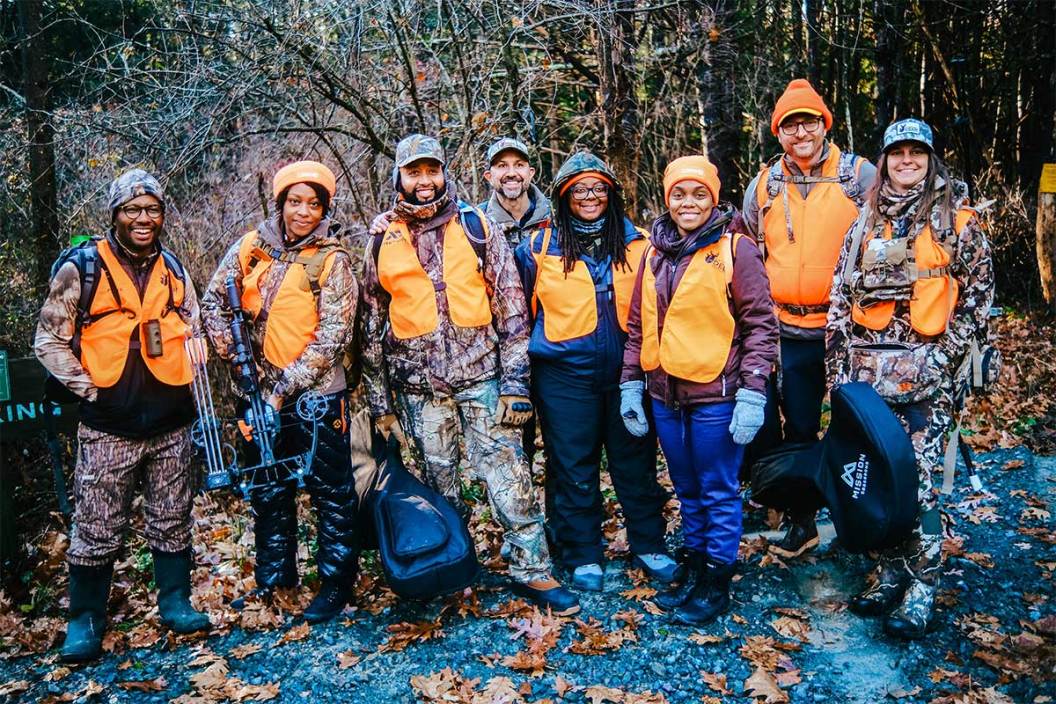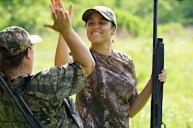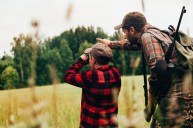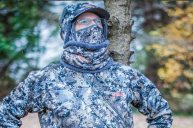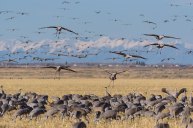Hunters of Color has set out to build bridges over the barriers that blocked Black, Indigenous, and People of Color (BIPOC) from hunting.
A few years ago, the founders of the Oregon-based nonprofit Hunters of Color, Lydia Parker, Jimmy Flatt, and Thomas Tyner, were three friends from Oregon State University who had noticed an alarming statistic: According to the U.S. Fish and Wildlife Service, 97% of hunters in the nation are white, with only 3% of hunters being BIPOC. Additionally, 98% of private land is owned by white Americans, according to the USDA.
Many BIPOC are generationally displaced from their ancestral traditions of hunting both by legislation that made it difficult (if not illegal) for BIPOC to participate in hunting, and by the racism that faced many if they tried.
It makes sense then, that BIPOC would struggle to take that first step.
It's not for lack of interest. The Wildlife Society reported in 2021 that 38% of people surveyed that wanted to hunt were BIPOC.
Hunters of Color works to address that gap for BIPOC that want to experience our hunting heritage.
"We create equitable access to the outdoors," Parker, who serves as Executive Director, said. "We create community for people to access the outdoors with. We break down barriers to entry, specifically for communities of color, because through our experiences and research we have found unique barriers to entry that exist for communities of color."
Barriers to Hunting for Black, Indigenous, and People of Color
The three biggest barriers to hunting, Parker said, are lack of access, lack of knowledge, and lack of exposure. The group tackles these barriers through targeted education, mentorship, and relationship building.
Hunters of Color's education programs have two facets: they educate the general public about the benefits of hunting as it pertains to conservation, the importance of diversity, and the history of race and hunting. They also educate BIPOC communities by teaching them how to hunt. The goal is to instill in them (new BIPOC hunters) the courage to reclaim their ancestral traditions and empower their self-sustenance by equipping them with the skills they need to procure sustainable meat.
Since being founded in 2020, Hunters of Color has connected numerous BIPOC hunters with the knowledge and materials needed to become full-fledged hunters. They have coordinated events nationwide, including upland bird hunts, crossbow whitetail deer hunts, and more.
Growth of an Important Organization
Hunters of Color has built a loyal following of 11,900+ followers on Instagram. The organization itself is growing, too. Within the past few weeks they announced a new employee hire.
Despite all this quick growth, it's not all peaches. The shooting death of hunter Peter Spencer, a Jamaican immigrant, in December has brought to the surface the fears and hesitations for many BIPOC hunters that would like to hunt but do not feel safe doing so. It is another reason why the work that Hunters of Color does is so important.
"One of the biggest barriers that we get from outside our organization is people that are afraid to enter the outdoors," Parker said. "They are afraid of being out in the middle of nowhere at a deer camp or a duck hunting facility or on opening day with lots of hunters around. Think about it: if 97% of hunters are white, they are entering a predominantly white space; oftentimes these spaces don't have cell phone service, and they're also entering a space where people have firearms. For a lot of communities of color, all of those things can be really scary, and it makes sense. It only takes a tiny bit of empathy to understand that fear.
"We have responsibility as a hunting community to create spaces where, when someone like Peter Spencer shows up, he is going to be able to go home to his family. Until the hunting community is more intentional in safety for people of color and understanding the different needs for different communities of color, understanding different barriers for different communities of color, understanding the need for antiracism and intentional inclusion, we will never be able to create communities that people of color want to enter as long as things like that are happening."
Hunters of Color is currently the only nationwide hunting nonprofit led by BIPOC, for BIPOC. The organization relies solely on support from members and sponsors to sustain the mission. To make a donation, or to learn about other ways to get involved, visit the website at huntersofcolor.org.
NEXT: "UNLIKELY HIKERS" IS THE INCLUSIVE OUTDOOR COMMUNITY FOR THE UNDERREPRESENTED
